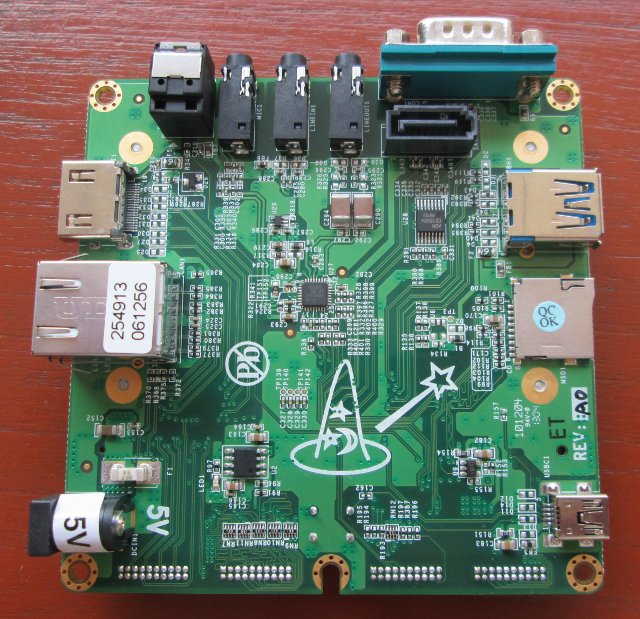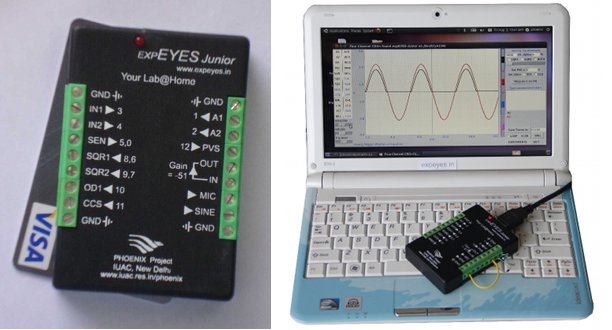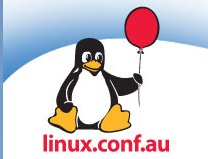Since I’ve received my previous short review of the Wandboard Dual development board, there has been more work on done the platform with new Android and Ubuntu images, Jelly Bean source, Linux SDK release, and git repo setup. I’ve tried the binary images, and had a quick look at the source code and corresponding documentation. Android 4.1.2 Image and Source Code Wanboard has release an improved Android image on the 14th of March which you can download for both Solo and Dual version of the development board with the following Changelog: Fix HDMI audio/playback issue with certain monitor. Add support for wifi on wandboard-dual. Known issue: Might need to turn off “Avoid poor connections” in Wi-Fi ->Advanced to keep connection alive. I’ve given it a try in Wandboard Dual, and it seems Ethernet support is gone (Sorry my mistake, Ethernet IS working, but there’s no indication when it’s connected, and […]
Ubuntu 11.10 on GK802/Hi802 mini PC with 2D/3D and Video Hardware Acceleration
You may remember an Ubuntu 11.10 image was released via Geekbuying early January, but this image would not boot on my Hi802, lacked 2D/3D acceleration, and to my knowledge there hasn’t been any update since then. So hope of proper Linux support on the device was fading, until the community discovered Freescale released patches for i.mx6 HDMI dongles, developers setup the imx6-dongle community, and after a lot of work, mainly by three members: Jasbir, Dmitriy (rz2k) and James, there’s now GPU and VPU support on Ubuntu 11.10. Here’s a summary of the current status: Wifi working. External SD working Matched IOMUX configuration to align with the Android image. Stripped out unnecessary device initialisation from the original HDMI dongle source. Enabled EGL and GLES HW Acceleration in Ubuntu. Unity desktop might be partially HW accelerated (TBC) Jasbir uploaded a video to YouTube to show the progress, and it looks pretty good. […]
Zopfli Library Improves Zlib Compression by 3 to 8%
Google developers have released a new compression library called Zopfli. This library, written in C, is compatible with zlib, yet provide a better compression, more exactly 3 to 8% according to Google. This library can be used on servers for better compression in order to save bandwidth, as well as delivering web pages faster. Since it’s fully compatible with zlib, the web browsers do not need to be changed. The only drawback is that it’s several magnitude slower than zlib, so it’s better used for static content that is compressed once, and sent over the Internet many times, and it may not be a good choice for dynamic content. The source code is available at https://code.google.com/p/zopfli/, so let’s try it. Get the code and build zopfli:
|
1 2 3 |
git clone https://code.google.com/p/zopfli/ cd zopfli make |
Different levels of compression are available:
|
1 2 3 4 5 6 7 8 9 10 11 12 13 14 15 16 17 |
./zopfli -h Usage: zopfli [OPTION]... FILE -h gives this help -c write the result on standard output, instead of disk filename + '.gz' -v verbose mode --gzip output to gzip format (default) --deflate output to deflate format instead of gzip --zlib output to zlib format instead of gzip --i5 less compression, but faster --i10 less compression, but faster --i15 default compression, 15 iterations --i25 more compression, but slower --i50 more compression, but slower --i100 more compression, but slower --i250 more compression, but slower --i500 more compression, but slower --i1000 more compression, but slower |
For testing purpose, I’ve just saved this blog as one html file (test.html – 67275 bytes) […]
$35 expEYES Junior Transforms the Raspberry Pi, Aakash2 Tablet or any Linux Powered Device into an Electronics Lab
I remember in high school in France, our class only had 2 oscilloscopes and few other electronics equipment, needless to say I did not actually get to use an oscilloscope until I went to university. It would have been nice to be able to play around with oscilloscopes, frequency generators, etc… earlier, but due to budget constraints, this was not possible. Dr Ajith Kumar, a scientist working with the Inter University Accelerator Centre of India, has spent several years working on an ultra low cost electronics lab composed of an oscilloscope and a signal generator to provide students attending schools that cannot afford regular equipments. This learning & experimentation tool is called expEYES, and a prototype was demonstrated last year with the Raspberry Pi. At the end of last year, the final version called expEYES Junior (aka expEYES 2.0) was announced, and is now available to schools and hobbyists in […]
mbed 2.0 SDK Released, becomes Open Source and Supports $12.95 Freescale Freedom Board
The mbed community has had a pretty busy week, with first the announcement that mbed SDK would become open source, the release of mbed 2.0, and finally support for the low cost Freescale Freedom board FRDM-KL25Zpowered by Kinetis Cortex M0+ KL25Z MCU. mbed becomes open source The mbed Software Development Kit (SDK), a C/C++ MCU software platform, has always been free (as in free beer) for both commercial and noncommercial use, and the large community around mbed has written tons of code for ARM microcontrollers. But now that the SDK has now a stable API, and the developers achieved transparent portability for code based on the SDK across multiple controllers and multiple toolchains, they decided to release the SDK source under an Apache 2.0 license. Although sharing modifications is encouraged, this license allows users to keep the changes closed if they wish to do so. mbed developers explain that the 3 […]
Open ARM GPU Drivers FOSDEM 2013 Video and Call to ARM Management
As I previously wrote, FOSDEM organizers are slowly uploading FOSDEM 2013 videos. One of the most interesting talk “Open ARM GPU Drivers” is now available. I’ve also uploaded it to YouTube (embedded below) to give it more exposure. Luc Verhaegen has also written a recent blog post entitled “Hey ARM!” where he announces the release of the modified source for Quake 3 Arena demo, and asks ARM to join them in making an open source driver. Open ARM GPU Drivers @ FOSDEM2013 This session covers the following key points: Problem – Binary drivers are mainly designed to run in Android, and it’s very difficult to have proper GPU drivers for Linux, and companies are not interested to release open source drivers or even just documentation, as they are not convinced it will benefit them in any way. Legal – This is actually the main issue, as open sourcing existing driver […]
Developer Community for Freescale i.MX6 HDMI Dongles
Last week, I explained how to build U-boot, the kernel, and Android for Freescale i.MX6 HDMI dongle reference platform. Since them, there has been a bit more activity, with Richtechie releasing source code to some ARMTvTech members. However, this source code is very similar to the one released by Freescale, and misses some part present in the kernel config on GK802 such as CONFIG_MACH_MX6Q_RICHTECHIE, and the company clearly does not comply with the GPL. Let’s forget that for now, as Jasbir (who is also behind the Hackberry board) has managed to build and boot the kernel on his mini PC. There’s still more work to do, but at least we have a based to work on. In the meantime, I’ve noticed rz2k, an other developer, was also giving it a try on #arm-netbook Freenode IRC channel, so we decided to setup a few things to facilitate development and communication between developers. […]
Linux Conference Australia and FOSDEM 2013 Videos are Now Online
FOSDEM 2013 took place last week, and the organizers are in the process of uploading videos. Up to now, 5 main tracks sessions have been uploaded (Firefox OS; Free, open, secure and convenient communications; FreedomBox 1.0; Samba 4; and systemd, Two Years Later) as well as over 20 lightning talks. You can find the videos at http://video.fosdem.org/2013. You may also want to check my previous post for a lists of interesting talks, and I’ll probably feature some FOSDEM 2013 videos in this blog, at least the open source GPU driver talk. Linux Conference Australia took place on January 28 – February 1, 2013, and the 5-day conference featured lots of talks including several dealing with graphics in Linux, and one developer apparently trashing X in terms of complexity and performance, and explaining how Wayland was better. Others Linux sessions dealt with subject such as 3D printing, supercomputing, Arduino, big.LITTLE processing, […]






